It was a Thursday morning, and Meir Bachar was instructing that day’s crop of volunteer avocado pickers.
“This is a huge area,” he said, extending his arm to encompass an expanse of 800 dunams (197 acres) of orchards in northern Ashkelon, mostly avocado trees and a section of citrus trees.
There were many avocados to pick, but Bachar was realistic about his crew of around 35 novice field hands. He’d get four, maybe five hours out of them, which meant about four to six rows of trees picked for the day.
Bachar manages these orchards for two moshav communities, Kfar Hanagid and Ge’alya, marketing all the fruit through the Mehadrin brand, one of Israel’s largest growers and exporters of citrus, avocado, dates, and other produce.
Bachar was speaking to a group of mostly middle-aged Israelis who have found themselves volunteering on a regular basis since October 7, when 32 Thai agricultural workers were killed and 23 kidnapped, among some 1,200 people killed and 240 taken hostage in the Hamas terror onslaught.
In the aftermath, thousands were flown home by the Thai government, eager to escape a tragedy and situation that wasn’t theirs.
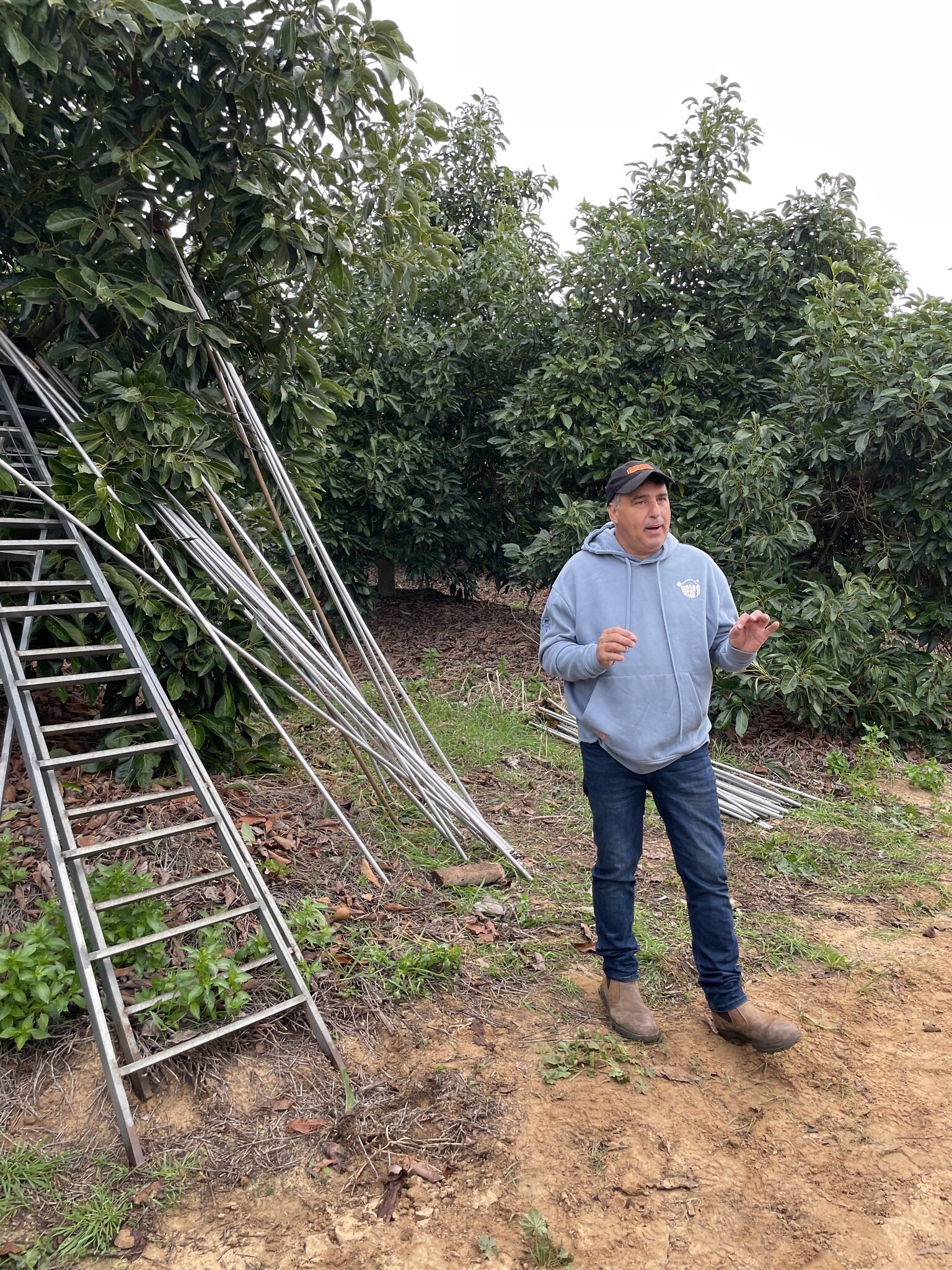
Meir Bachar speaking to avocado-picking volunteers on December 20, 2023 (Jessica Steinberg/Times of Israel)
Agriculture Ministry director general Oren Lavi has called this the worst manpower crisis for agriculture in Israel’s history, with a shortage of about 40,000 farm laborers.
Until October 7, Bachar had worked with 15 Thai workers; now just one remains.
“They all left and now they want to come back, but it’s a complicated process to bring them back,” he said, briefly explaining the country’s five-year visa limit for field hands. “The laws don’t allow them back, so while civilians are incredibly helpful and moved quickly to help us, the government offices are stuck.”
Like many Israeli growers, Bachar is currently looking for solutions. He used to work with field hands from Gaza, “but I can’t get them now and I don’t want them,” he said. Reports have said some of Hamas’s intelligence leading up to the October 7 invasion was received from Gazan day laborers working in Israel.
Bachar has also worked with Palestinian field hands from the West Bank, but they’re similarly not available during the ongoing war.
So he’s stuck with Israeli volunteers, about 30 to 40 each day, until he gets more field hands from abroad, probably from Sri Lanka, Thailand or Africa.
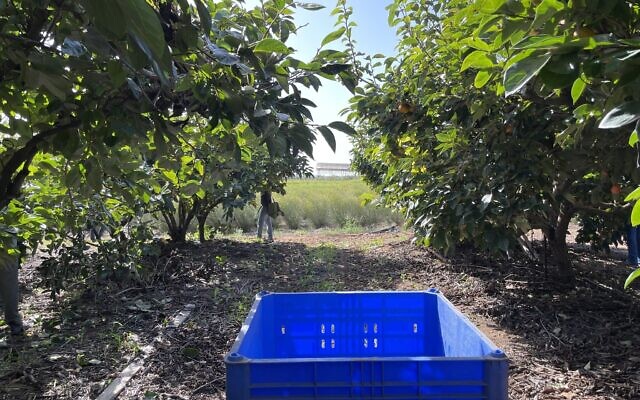
Picking oranges on Moshav Telamim near Sderot on December 5, 2023 (Jessica Steinberg/Times of Israel)
The volunteers are a help, said Bachar, echoing every other farmer who received waves of Israeli volunteers in the last 12 weeks.
There’s a Facebook group known as Tzav 8 for agriculture, a play on the IDF order that calls up reservists for duty, where growers can post what days they need volunteers, whether for picking cherry tomatoes in the Gaza border area, oranges near Gedera, or strawberries in Kadima or Gedera.
Google sheets contain listings of farmers, separated by region, color-coded to show which farms accept kids under the age of 15 as volunteers, which farmers serve lunch (a few) and whether they have field shelters for protection from rockets fired from Gaza (most don’t).
The farms in the Gaza border communities may have the greatest need given the destruction wreaked upon them by the Hamas terrorists on October 7, and the fact that their residents were evacuated.
Yet nearly every farm in Israel is in the same situation right now, whether growing persimmons in Rishpon, oranges near Sderot, eggplants near Rehovot or strawberries in Kadima.
Most farms normally rely on Thai workers, along with some field hands from Gaza or the West Bank. And while some farmers also work with Hashomer Hahadash, an organization of young Israelis who regularly volunteer at Israeli farms, many of those volunteers are currently performing reserve army duty in the north or south of the country.
For many of the farmers, the need to coordinate with volunteers is another task they’ve had to take on — some with more equanimity, others with less.
Yaara Kachlon, a successful ceramicist who’s married to farmer Guy Kachlon, is now in charge of the weekly search for volunteers for her husband’s farm in their home of Moshav Klahim near Netivot.
“I don’t usually have much to do with the farm,” said Kachlon, whose studio is in their backyard, just feet away from the packing house where her husband’s workers live and work.
Now she creates social media posts about what’s needed each week, often with their dog pictured frolicking in the green fields. She fields the text messages and the phone calls, as volunteers ask about timing, what to wear, what to bring and how many hours are needed. She’s even made breakfast for volunteers, served on her creamy white pottery, on a couple of Friday mornings.
Her husband grows cauliflower and zucchini, followed by seasons of watermelon, melon and onions. Their eldest son is serving in Gaza, and their 18-year-old son and 16-year-old twin daughters help out, but he also gratefully accepts the help of volunteers, such the two family units and friends who planted cauliflower for him several weeks ago.
It took 12 volunteers about four hours to plant three long rows of tiny cauliflower seedlings in holes bored into the damp earth with long bamboo poles. Kachlon and his son were patient, but also eager to meet their new African workers, expected the following Saturday, in time to pick the cauliflowers that would be fully grown in about 90 days.
The following week, Yaara Kachlon reported that they had seven new workers who were “really nice and friendly, and the learning is a bit slow, but there’s progress.”
The picking and planting season is a race against time, said Bachar. “If we don’t take down the avocados now, I won’t have anything next year, no flowers and no pollination.”
He explained the avocado-picking process to the group of volunteers, handing out roomy side satchels and avocado-picking poles — long metal poles with hooks on the end for grasping the avocado stems and pulling the hard, pebbly-skinned Haas avocados off the tree.
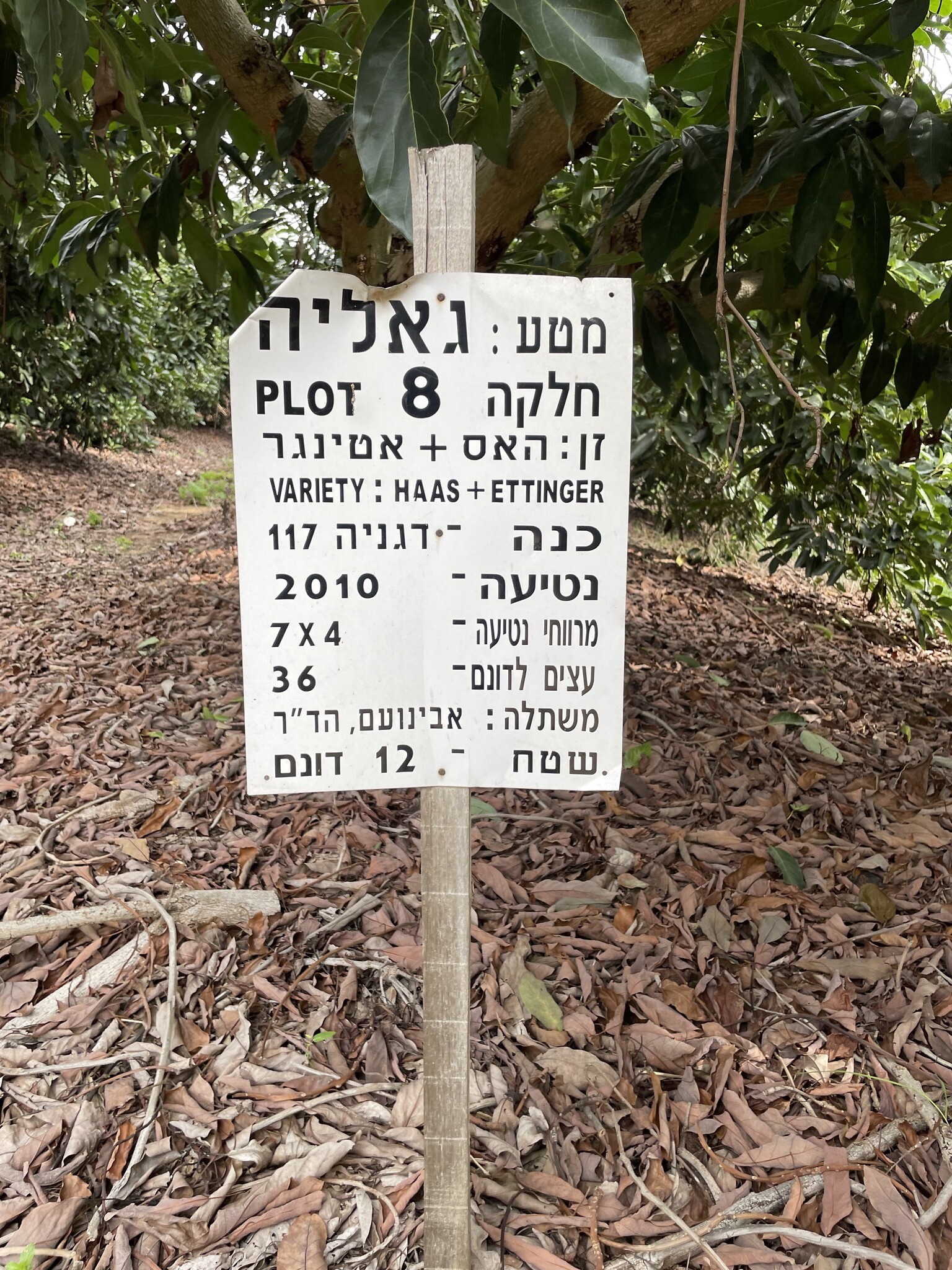
The avocado orchards run by Meir Bachar are divided into Haas and Ettinger, but only the Haas are sold (Jessica Steinberg/Times of Israel)
His helpers were eager to empty the trees of avocados, climbing ladders and branches to reach the topmost fruits, then bending low to fill their satchels.
When the lone remaining Thai worker came down the row, he brought a pole with a scythe attached to the top that brought down entire branches, making it easy to simply gather the avocados and toss them into the communal bin.
The dark Haas avocados are currently the dominant species in the Israeli market, and they’re pollinated in Bachar’s orchards by the longer, thin-skinned Ettinger avocados, developed by Israeli agronomist Akiva Ettinger.
Bachar doesn’t even try to sell the Ettingers, and told the volunteer pickers that they could take home any Ettingers they find.
In March, Bachar brings in beehives, relying on bees to collect the male pollen from the Ettinger trees to the orchards’ more dominant Haas trees, fertilizing the seeds in the Haas flowers that eventually grow into fruit.
Despite the pressure he’s under to get the avocados picked, he retains a sense of perspective — and of gratitude.
“My kids are serving in Gaza and there are bigger issues,” he said. “And, you’re here with us.”
That was the reaction of nearly every farmer with whom we volunteered for the last nine weeks.
Still, for many the struggle is overwhelming.
“Volunteers help with about 10% of the crops,” said Itzik Imira, who has 100 dunams (25 acres) of eggplants and zucchini planted at his farm in Moshav Yatzitz near Mazkeret Batya, but expects that only some 25% will get picked.
“I closed the water taps. I’m not watering the zucchini anymore because I won’t be able to pick them.”
He also won’t plant his next crops without knowing if he’ll have field hands to pick the produce.
Imira grew up on this moshav, where there are now only four farmers left. His parents grew potatoes. Now most potatoes are grown down south, in the Gaza border communities.
He usually has around 12 Thai workers. “They fled overnight,” said Imira. “Just packed their bags and left.”
Now he has a few expert field hands who crouch over the low vines, searching out the full-grown eggplants, snipping them close to the crown and then tossing them into plastic crates
Farmers like Imira once hired Palestinians to work in their fields, but less so since the 1990 Gulf War, when the government made a strategic decision to reduce dependence on Palestinian labor. These days, he has two Palestinian workers from Hebron, but they haven’t come since the start of the war.
When Imira retires, he said, that’s it for the family farm.
“My kids?” he said, with a laugh. “They’re in high-tech.”
"fruit" - Google News
December 31, 2023 at 03:01PM
https://ift.tt/XK9wBoD
Volunteers’ efforts bear fruit, but war-hit farmers would prefer professionals - The Times of Israel
"fruit" - Google News
https://ift.tt/su9Taw6
https://ift.tt/Iqe6JK2
Bagikan Berita Ini
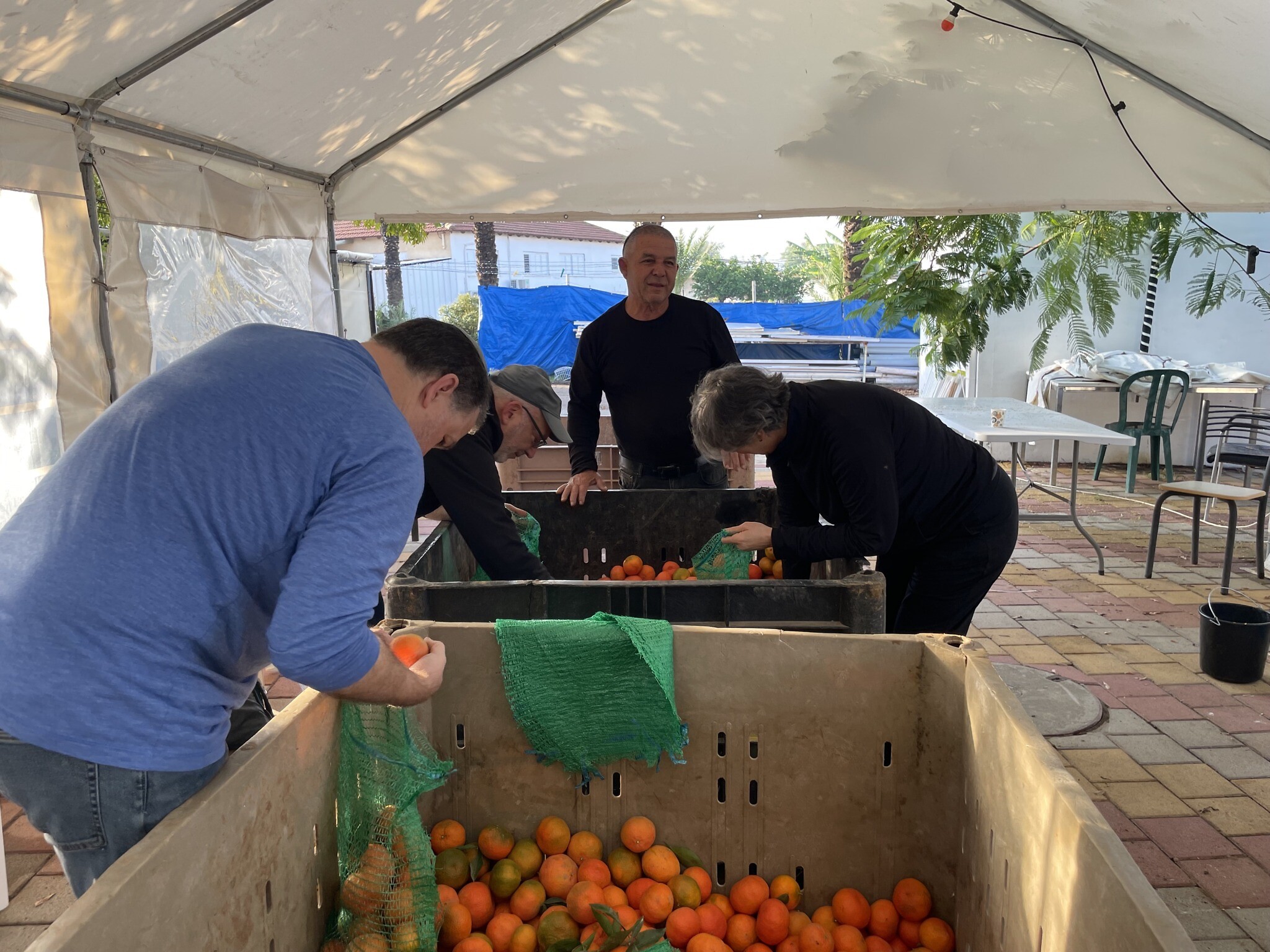
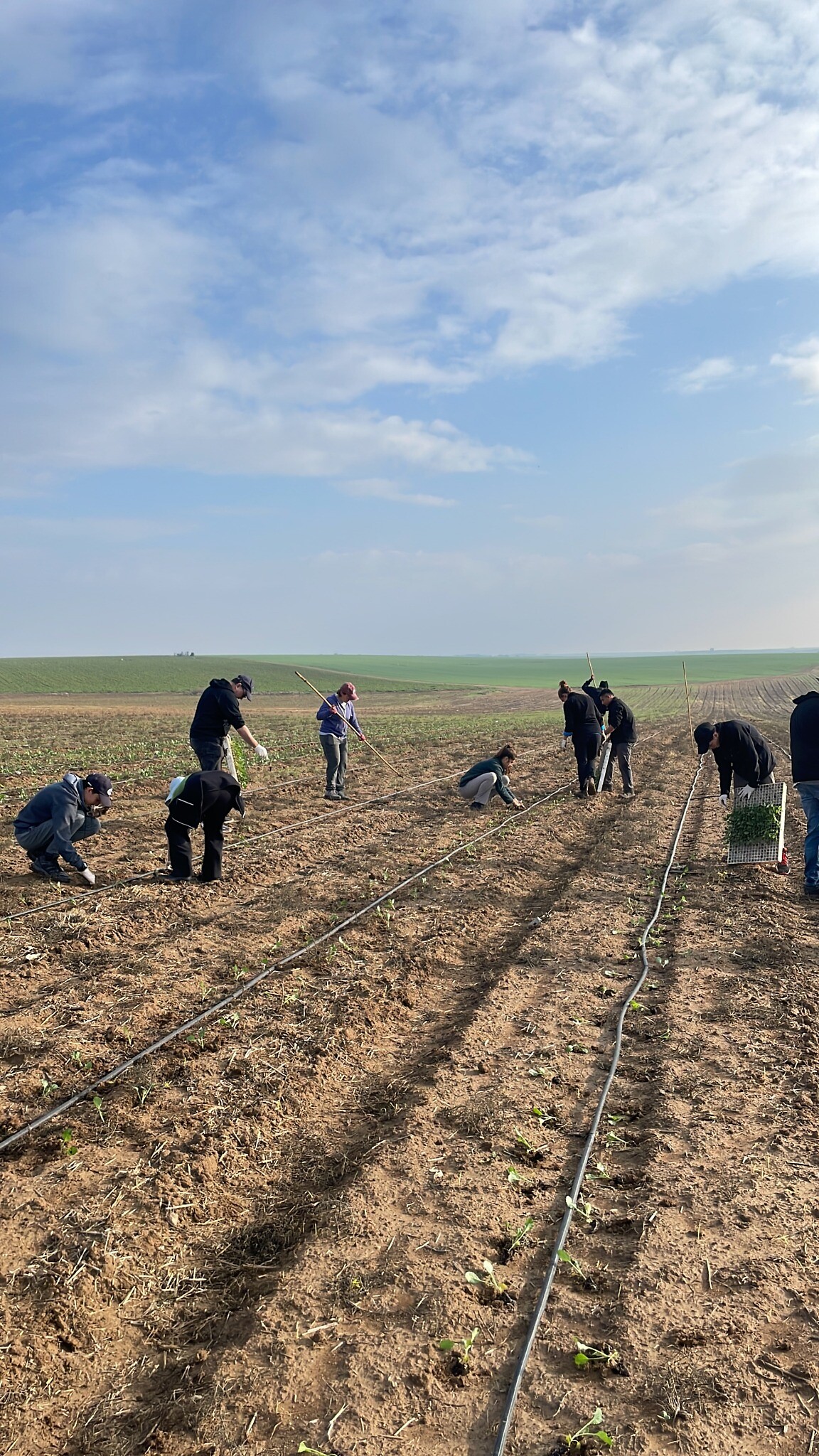
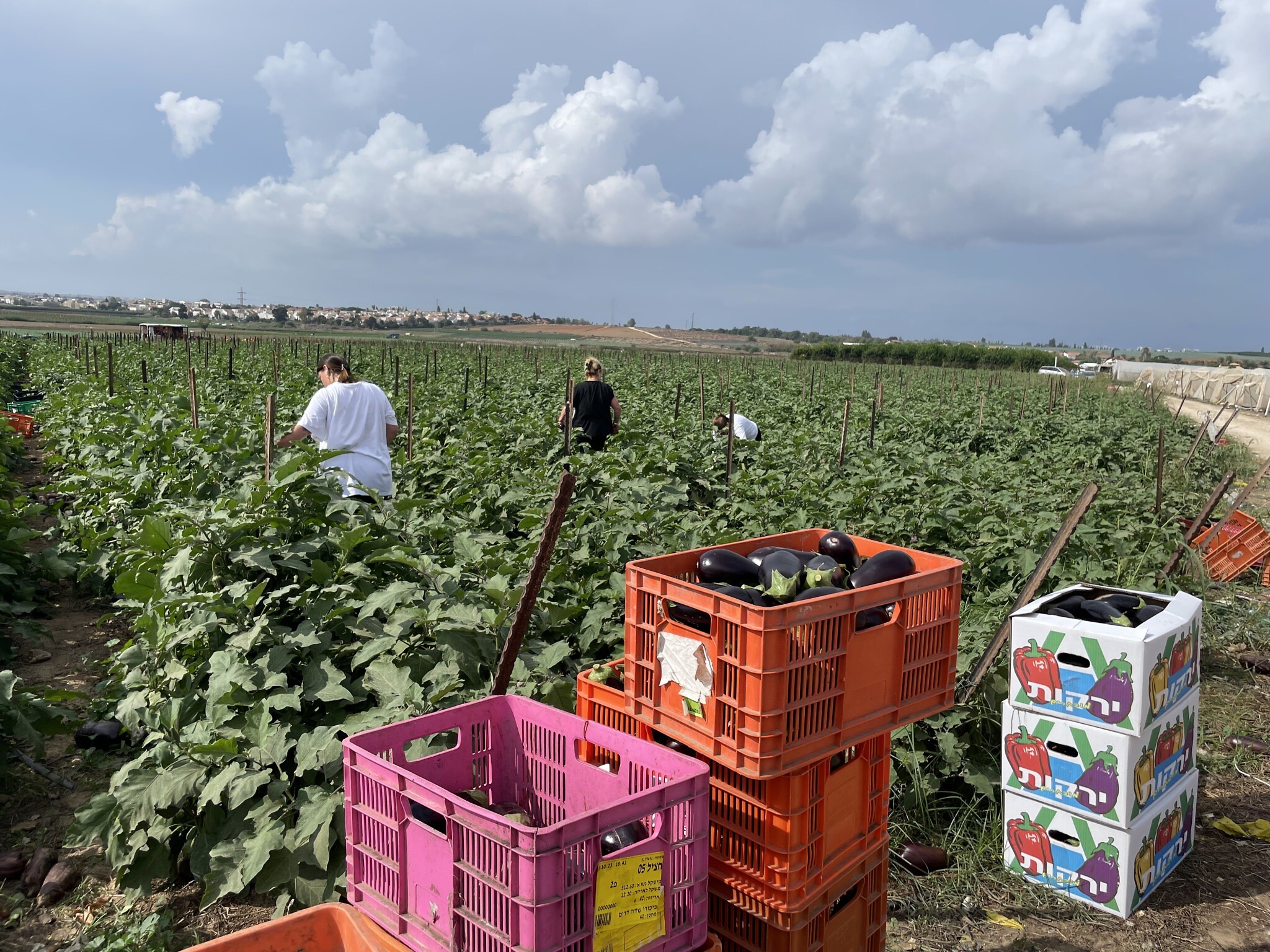














0 Response to "Volunteers’ efforts bear fruit, but war-hit farmers would prefer professionals - The Times of Israel"
Post a Comment